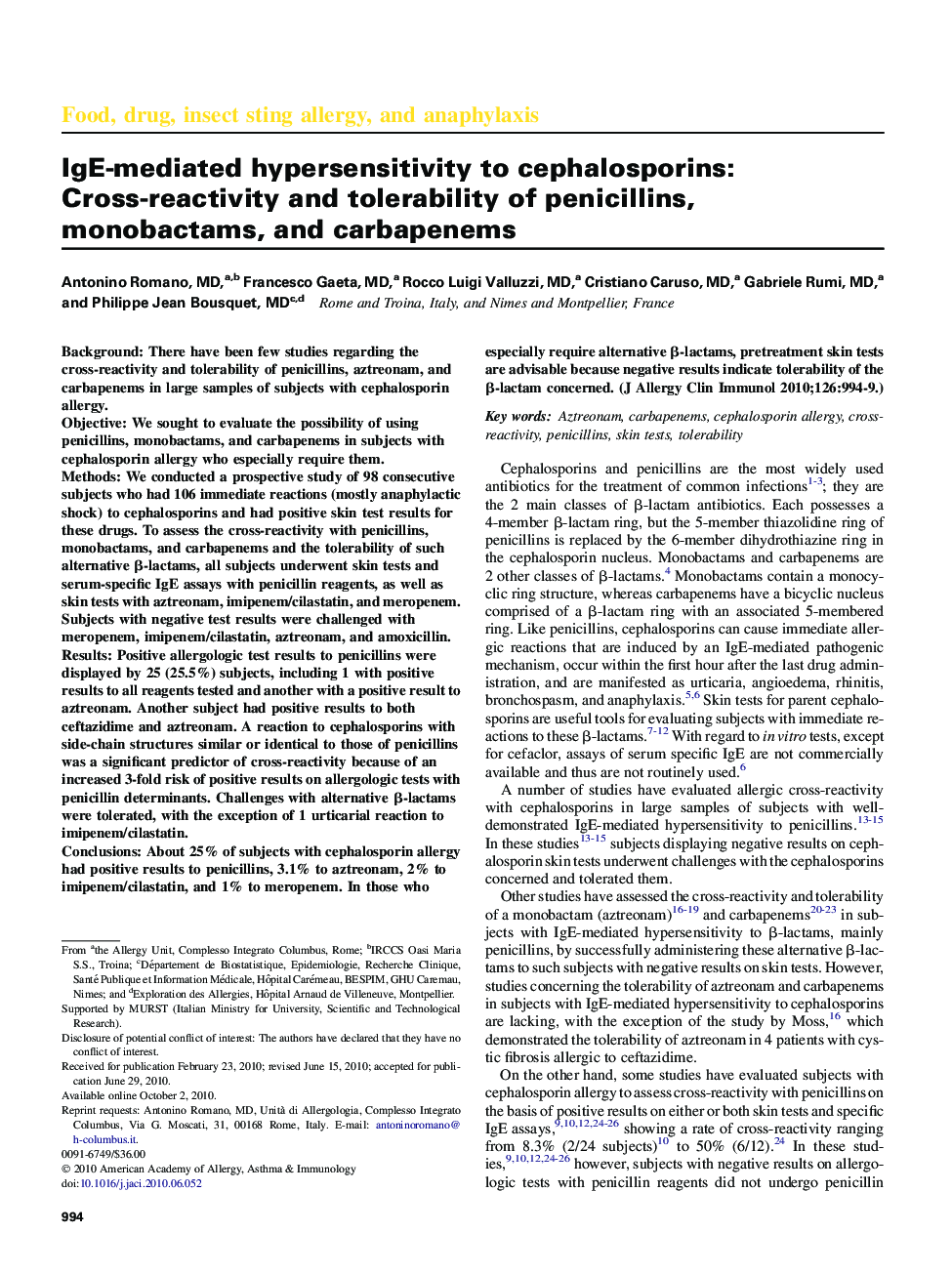| Article ID | Journal | Published Year | Pages | File Type |
|---|---|---|---|---|
| 3199300 | Journal of Allergy and Clinical Immunology | 2010 | 6 Pages |
BackgroundThere have been few studies regarding the cross-reactivity and tolerability of penicillins, aztreonam, and carbapenems in large samples of subjects with cephalosporin allergy.ObjectiveWe sought to evaluate the possibility of using penicillins, monobactams, and carbapenems in subjects with cephalosporin allergy who especially require them.MethodsWe conducted a prospective study of 98 consecutive subjects who had 106 immediate reactions (mostly anaphylactic shock) to cephalosporins and had positive skin test results for these drugs. To assess the cross-reactivity with penicillins, monobactams, and carbapenems and the tolerability of such alternative β-lactams, all subjects underwent skin tests and serum-specific IgE assays with penicillin reagents, as well as skin tests with aztreonam, imipenem/cilastatin, and meropenem. Subjects with negative test results were challenged with meropenem, imipenem/cilastatin, aztreonam, and amoxicillin.ResultsPositive allergologic test results to penicillins were displayed by 25 (25.5%) subjects, including 1 with positive results to all reagents tested and another with a positive result to aztreonam. Another subject had positive results to both ceftazidime and aztreonam. A reaction to cephalosporins with side-chain structures similar or identical to those of penicillins was a significant predictor of cross-reactivity because of an increased 3-fold risk of positive results on allergologic tests with penicillin determinants. Challenges with alternative β-lactams were tolerated, with the exception of 1 urticarial reaction to imipenem/cilastatin.ConclusionsAbout 25% of subjects with cephalosporin allergy had positive results to penicillins, 3.1% to aztreonam, 2% to imipenem/cilastatin, and 1% to meropenem. In those who especially require alternative β-lactams, pretreatment skin tests are advisable because negative results indicate tolerability of the β-lactam concerned.
